Cellist Natalie Clein’s Purbeck International Chamber Music Festival features star players and thought-provoking themes. Charlotte Gardner enjoys the music – and an unseasonal heatwave – in the Dorset countryside
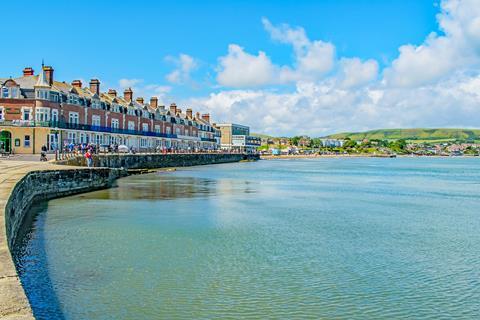
Discover more Featured Stories like this in The Strad Playing Hub.
Read more premium content for subscribers here
Does Natalie Clein have a special hotline to the English weather gods? It certainly felt that way as the four days of her Purbeck International Chamber Music Festival rolled out over a sudden mini-heatwave. The cobalt-skied, sun-baked splendour made it unusually fortuitous that the festival’s eight concerts, held from 7 to 10 September, were studded along some of Dorset’s most picturesque coastline, with some of its historic church venues little more than a stone’s throw from a beach. Never had so many swimsuits seen so much action at a UK classical music event.
The festival was established in 2009 as a result of founding patron Charles Good’s question to Clein: ‘If I were to give you some money, what would you do with it?’ Clein, who was born and grew up in Dorset, selects a different theme each year, exploring it through deliberately non-standard programming for which she invites a small and international complement of her musical friends, with everyone performing multiple times and in various configurations.
For 2023 the theme was Forgotten Voices, which took in a range of elements including Schubert being largely unrecognised during his own lifetime; Bartók’s lonely political exile in America; composers lost in the Holocaust; overlooked female composers; and the forgotten Yiddish voices of pre-war and interwar east London. Artists included the Danel Quartet – specially invited for the group’s Weinberg string quartet readings; violinist Nurit Stark – for her Bartók; pianist Marianna Shirinyan; soprano Kate Royal; mezzo-soprano Lotte Betts-Dean; singer and author Vivi Lachs; and artist Katharina Ziemke. It was precisely the blend of all the above that made the festival feel more than the sum of its parts. Clein’s programming was genuinely different, and each concert was set within extraordinarily beautiful and intimate concert spaces, with a palpable degree of personal warmth both on and off stage.
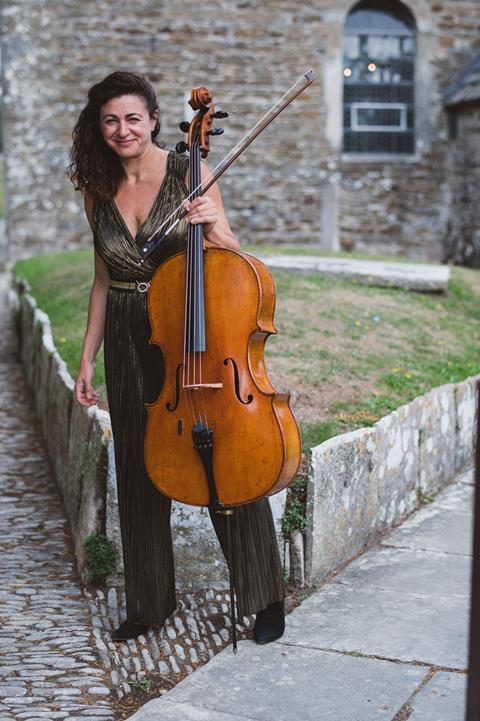
A prime example was the Friday evening concert at Dorchester’s Dorset Museum. Titled ‘The voice of the soul’, it opened with the soprano, string quartet and piano version of Chanson perpétuelle, Chausson’s luxurious-textured depiction of the suffering of an abandoned woman. Next came Bloch’s Three Scenes from Jewish Life, but with a twist – its order was reversed to begin with its final piece, ‘Song’, making it seem as if Royal’s rich soprano tones were being directly answered by Clein’s cello’s own mezzo-coloured lament. Next came early 20th-century Yiddish music-hall songs from Lachs, who soon had everyone clapping and singing along in Yiddish. The first half closed on Stark playing ‘Nigun’ from Bloch’s Baal Shem, the violinist appearing almost to become the music as she lifted on to her bare toes, her body swaying, while her musical lines remained sure and deftly shaped.
As her final decrescendo resonated quietly around the hall, you could have heard a pin drop, the spell was so intense. The all-Schubert second half then opened with his Goethe Lied ‘Meeres Stille’, from whose tranquil concluding C major chord sprang, attacca, the String Quintet in the same key. Clein slotted magically into the Danel Quartet’s dynamic to produce a dazzlingly joy-filled reading, culminating in the wildest, folkiest, merriest race to the work’s closing chord that I’ve ever heard.
Onwards, and Saturday morning’s recital in the Norman church of St Nicholas in Worth Matravers saw Clein and Stark taking full advantage of the venue’s diminutive proportions to introduce their works ad libitum. First, Clein cleverly alternated Domenico Gabrielli’s seven Ricercari with a selection of Berlin-based James Helgeson’s recent Tierpark animal depictions – to great effect. Then from Stark, a passionate, by turns wild and tender Bartók Solo Violin Sonata that she described as ‘the dearest piece to my heart’, and which people were still talking about hours later.
‘I know that the people I invite will give everything they have, which is the only way that we should approach music’ – Natalie Clein
Stark had also been up early that morning to be part of one of the weekend’s most touching interactions between artist and audience: a first-time collaboration with nearby Swanage Folk Festival, where she and Danel Quartet leader Marc Danel took to the beachside stage to perform Bartók violin duos as a complement to traditional polkas played by young local folk violinists. One of these musicians so caught Stark’s and Danel’s attention that Danel gifted her his spare copy of the Bartók.
Another innovation for 2023 was a first festival event in Wareham’s Rex Cinema (on Saturday afternoon), where Clein and Shirinyan performed Korngold’s short Cello Concerto, followed by a screening of Deception, the 1946 film noir for which he wrote it. These were not easy performance conditions, because Shirinyan had to make do with an electric piano. Yet, beyond the value of having our ears prepared for hearing the concerto within the film, the conviction of their playing ended up transcending the circumstances. This in turn confirmed the truth of conversations I’d had with the artists over lunch earlier that day, when Clein told me. ‘I know that the people I invite will give everything they have to the music and to the score, which I think is the only way that we should approach music as musicians. On stage, we would die for it, in a way. That may sound extreme, but for me there is a bit of truth in it. Let’s say I need intensity around me!’
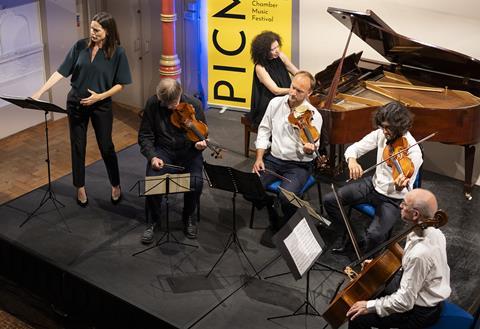
‘Natalie is doing something very special here,’ Stark told me. ‘When she likes something, she wants to share it with everybody. She wants everybody to melt into each other musically and feel the beauty. This is something I haven’t experienced anywhere else, and everybody wants to be a part of it.’
My own final pre-departure experience of PICMF’s unorthodox beauty came that night at Wareham’s Priory Church of Lady St Mary, where Clein and Shirinyan played an arrangement of Rebecca Clarke’s Viola Sonata. Their sweeping reading was accompanied by Katharina Ziemke painting Clarke’s portrait live, her progress projected on to a large screen behind the musicians. While I initially wondered whether this might turn out to be more of a distraction than a listening aid, it was ultimately rather beautiful to see Clarke’s face gradually appearing and taking on detail.
Next year’s festival is themed Youth and Experience and runs from 29 August to 1 September.
Read: Music by the sea: Postcard from Cornwall
Read: Postcard from Kerteminde: Chamber Music at Lundsgaard
Discover more Featured Stories like this in The Strad Playing Hub.
Read more premium content for subscribers here
The number one source for playing and teaching books, guides, CDs, calendars and back issues of the magazine.
In The Best of Technique you’ll discover the top playing tips of the world’s leading string players and teachers. It’s packed full of exercises for students, plus examples from the standard repertoire to show you how to integrate the technique into your playing.
The Strad’s Masterclass series brings together the finest string players with some of the greatest string works ever written. Always one of our most popular sections, Masterclass has been an invaluable aid to aspiring soloists, chamber musicians and string teachers since the 1990s.
American collector David L. Fulton amassed one of the 20th century’s finest collections of stringed instruments. This year’s calendar pays tribute to some of these priceless treasures, including Yehudi Menuhin’s celebrated ‘Lord Wilton’ Guarneri, the Carlo Bergonzi once played by Fritz Kreisler, and four instruments by Antonio Stradivari.

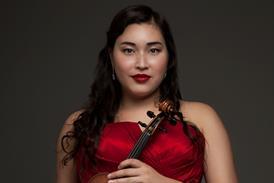
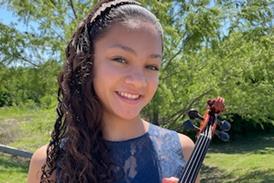
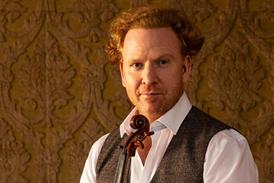




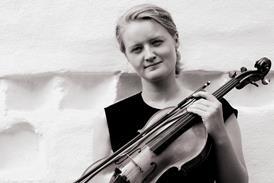




























No comments yet